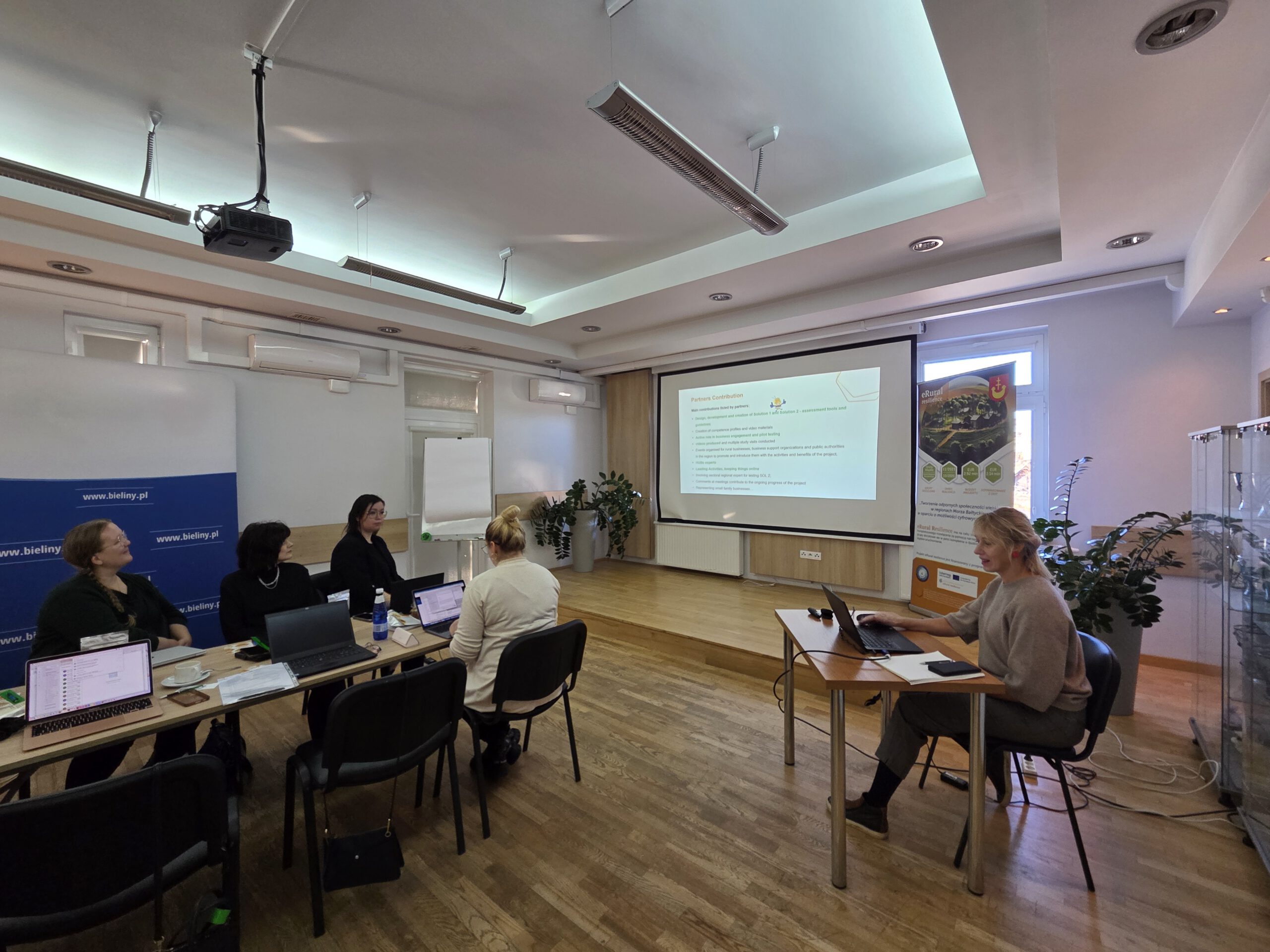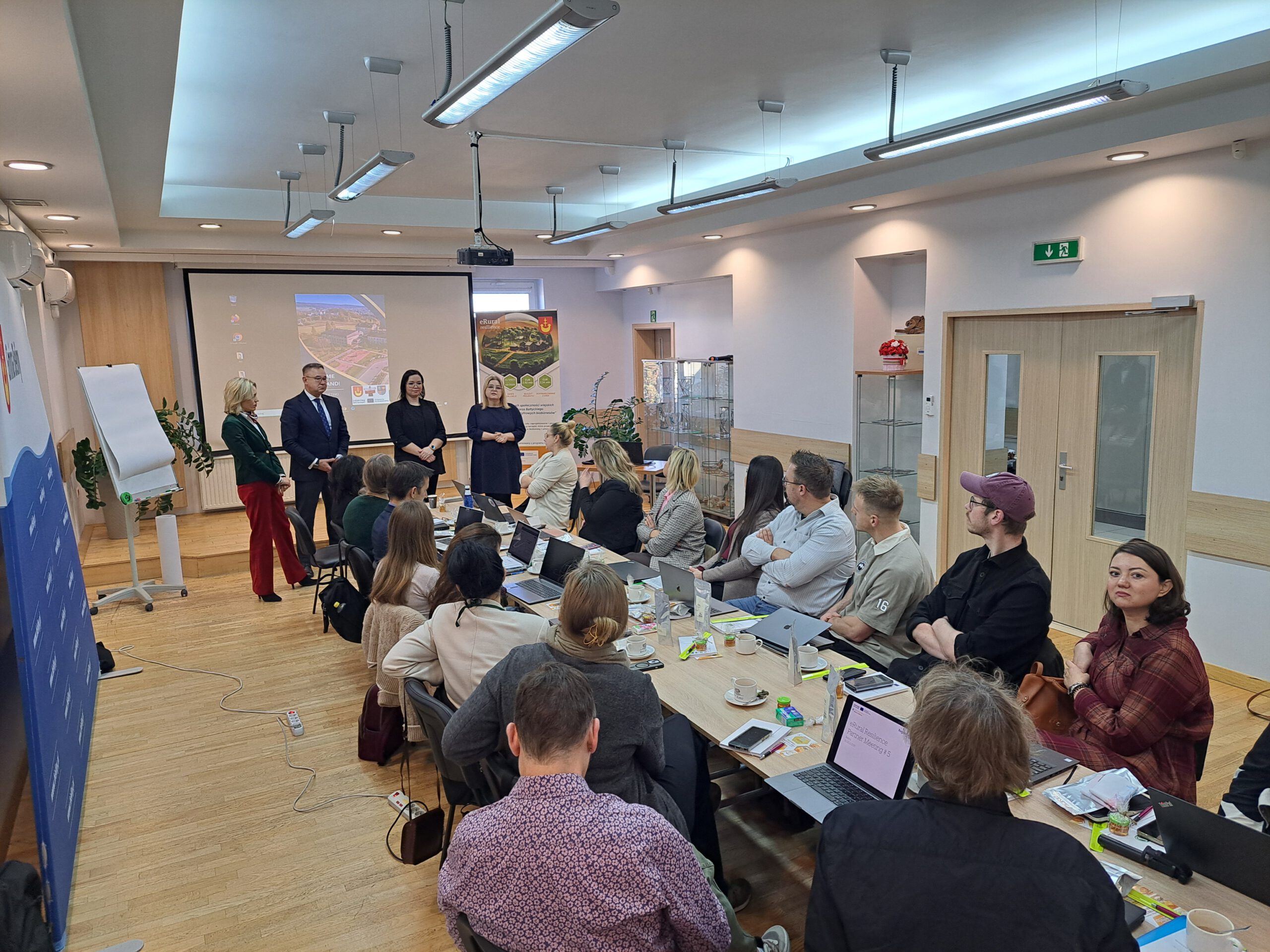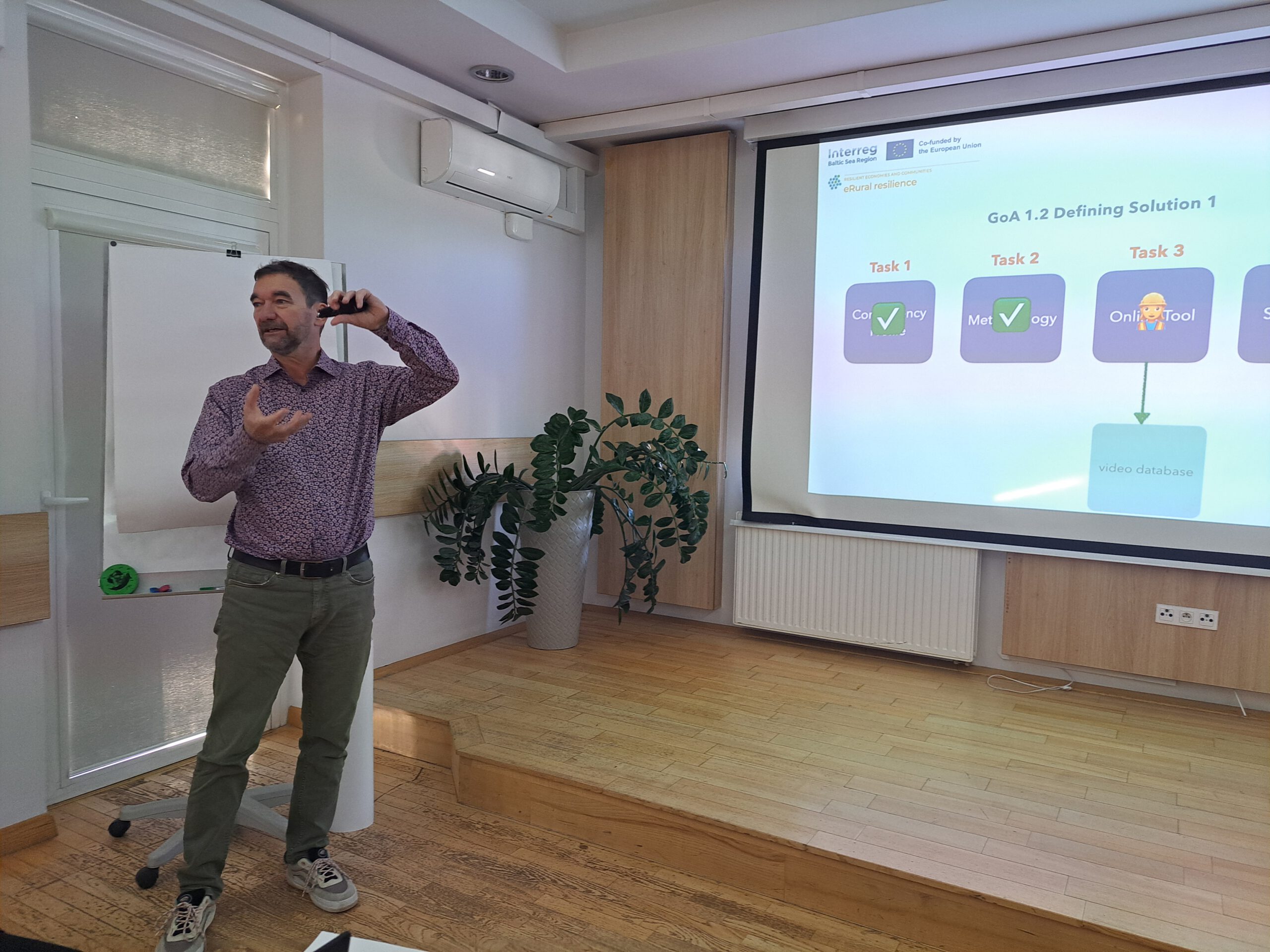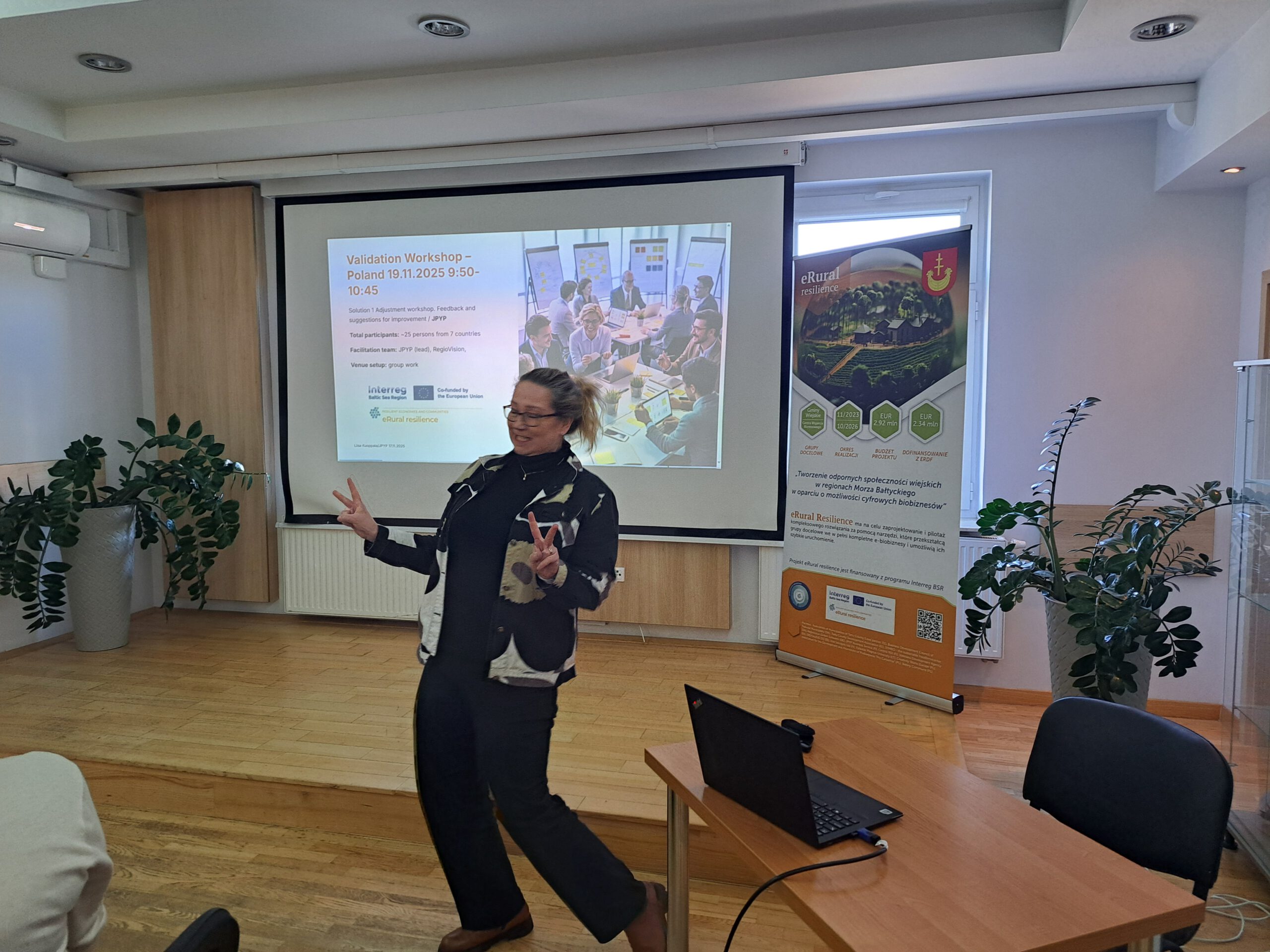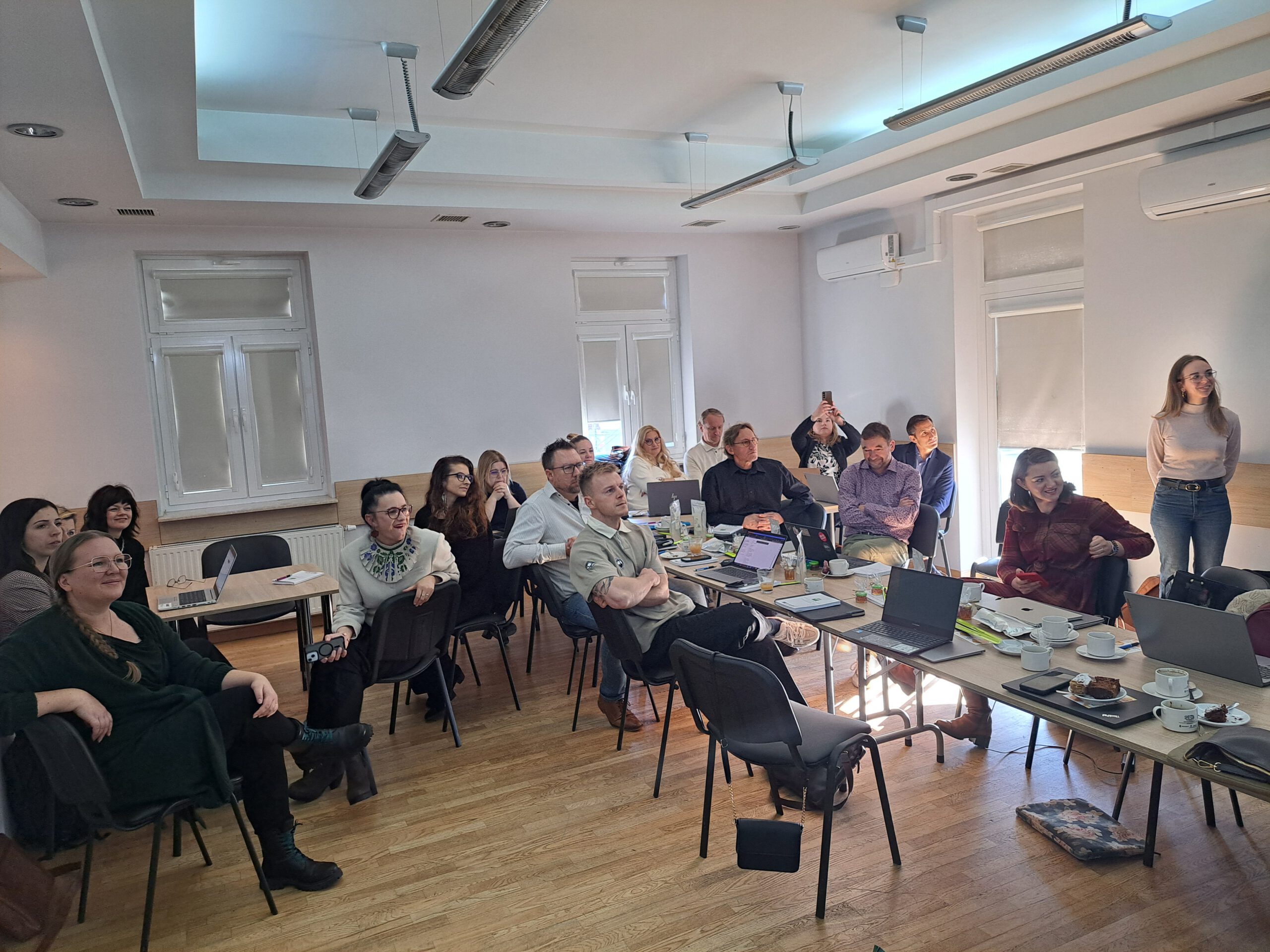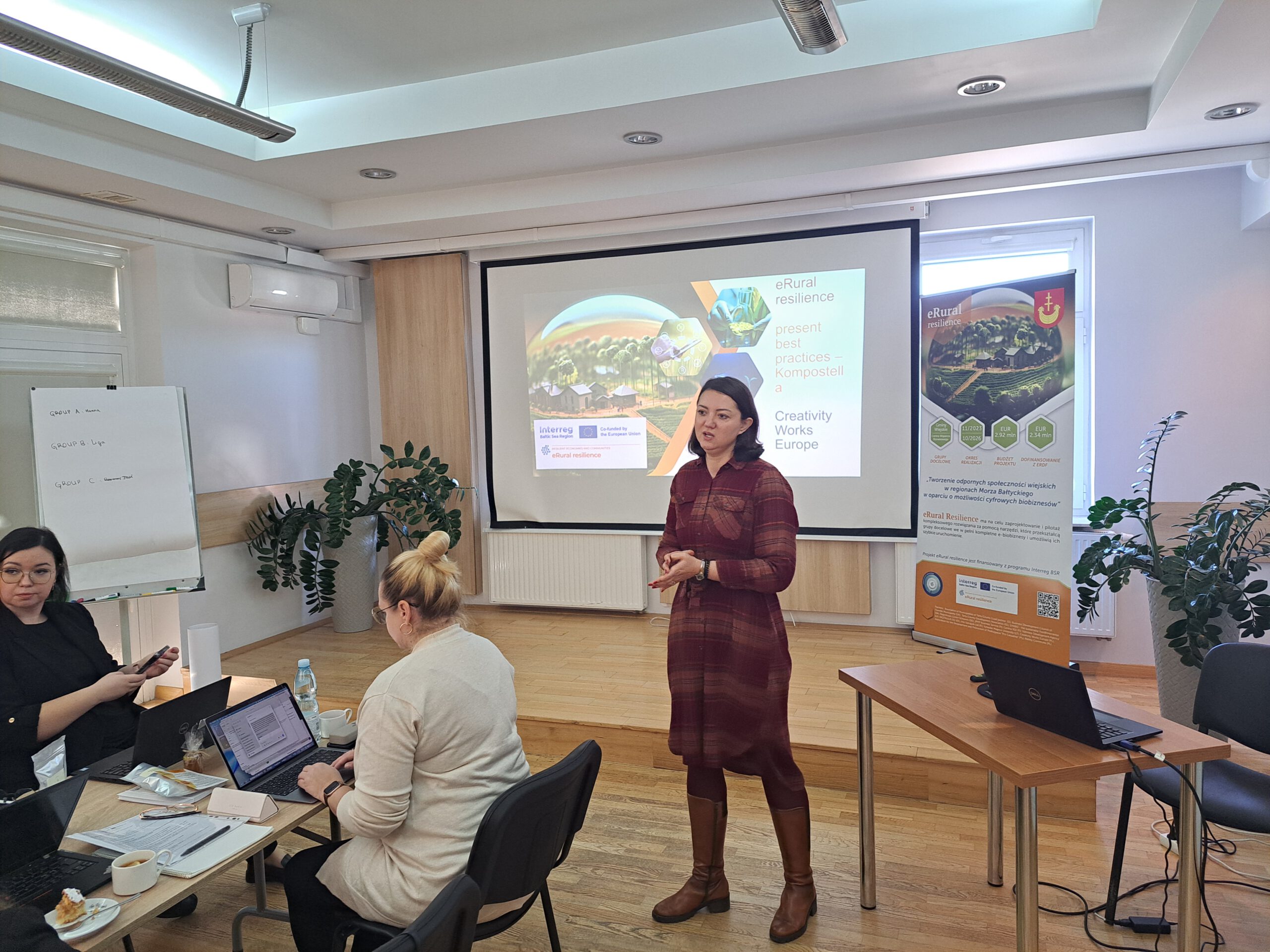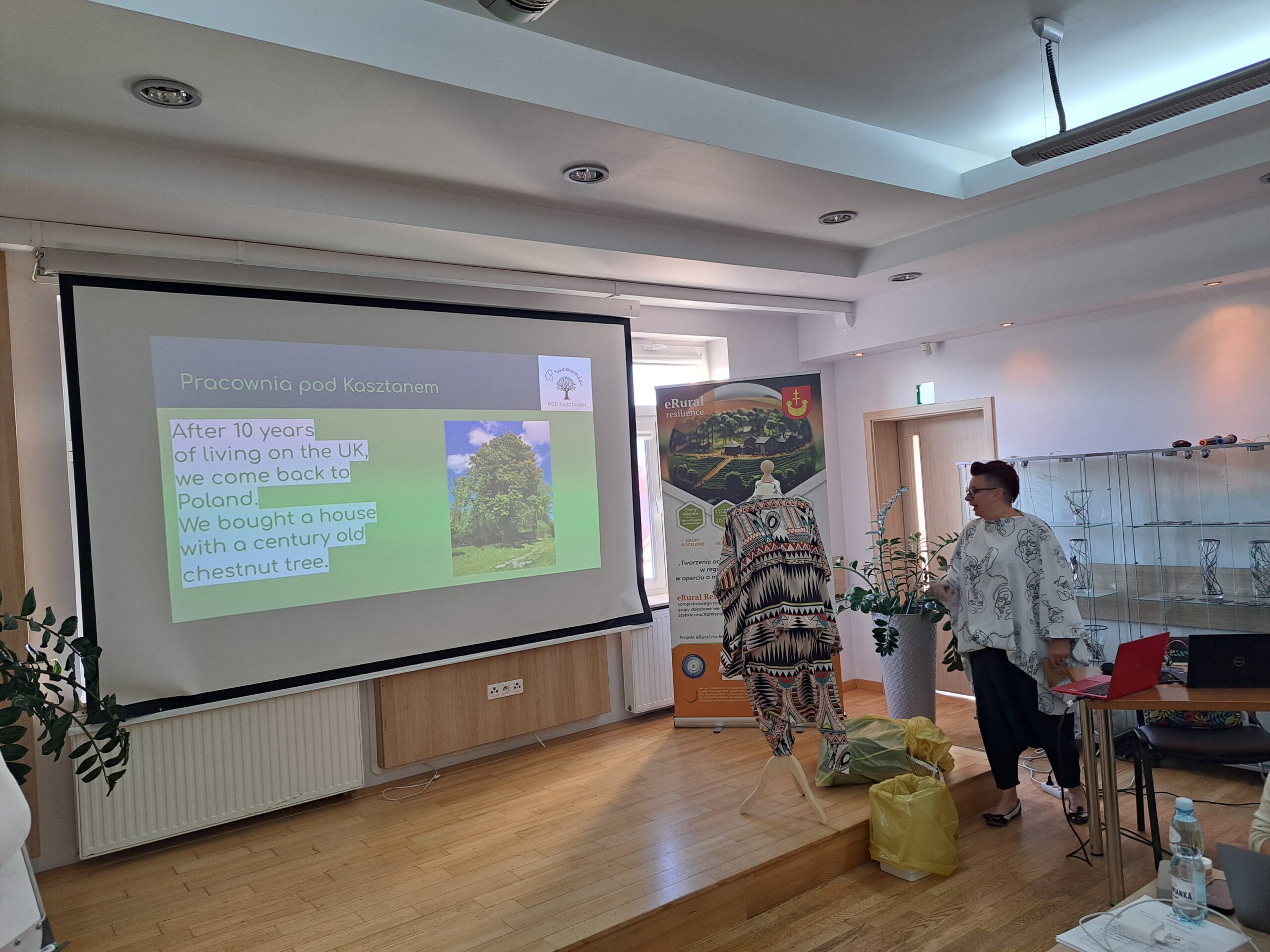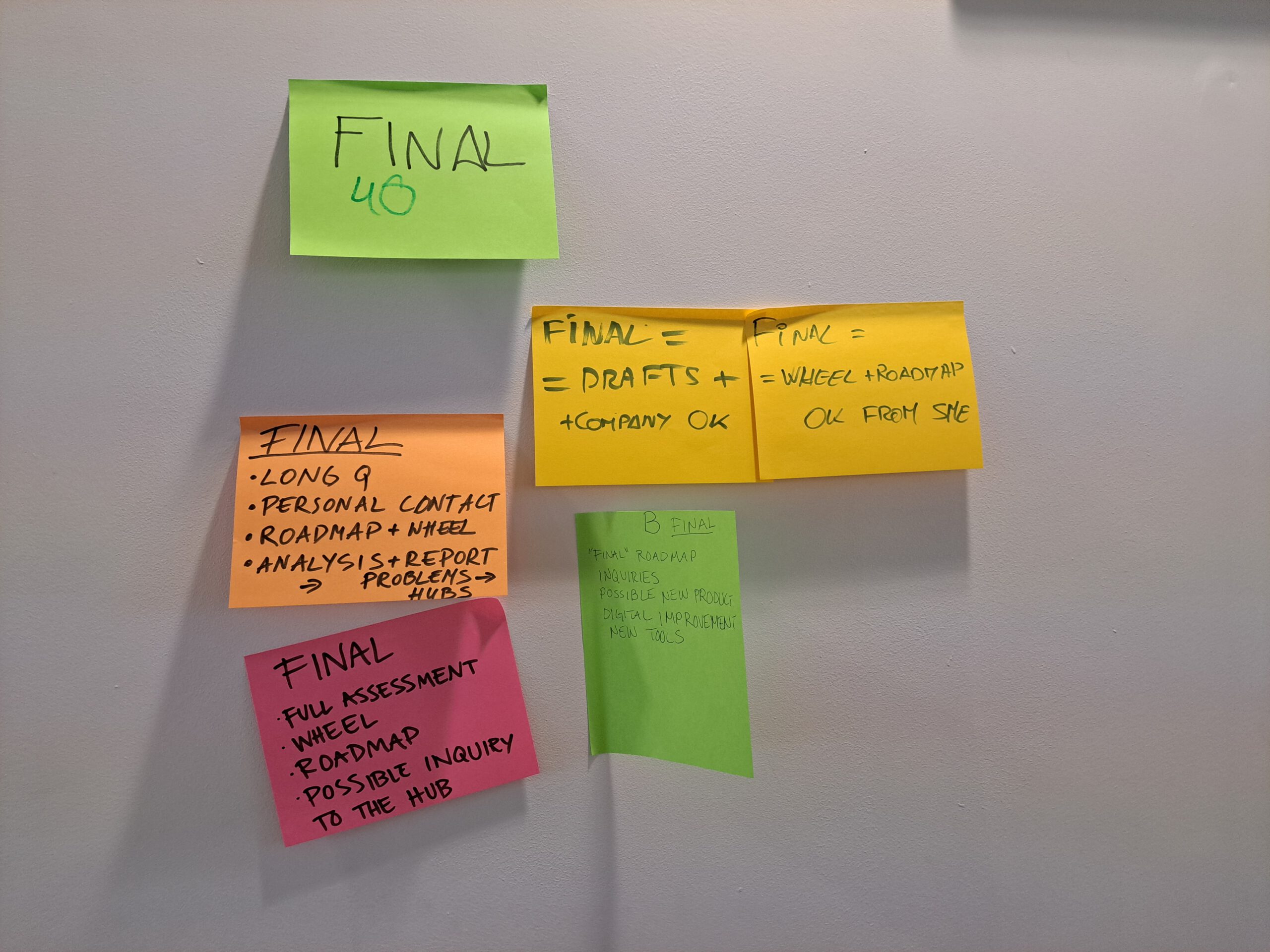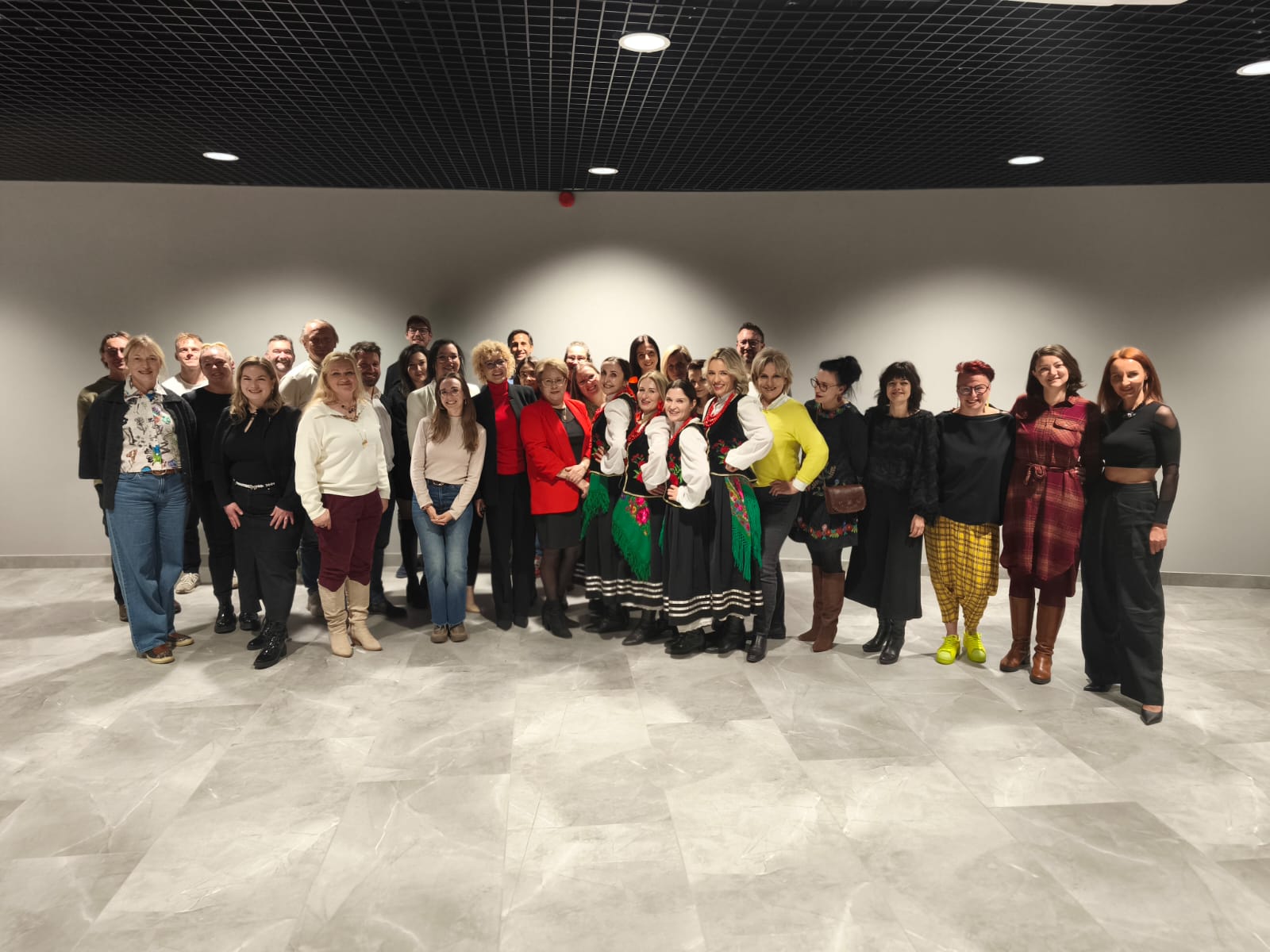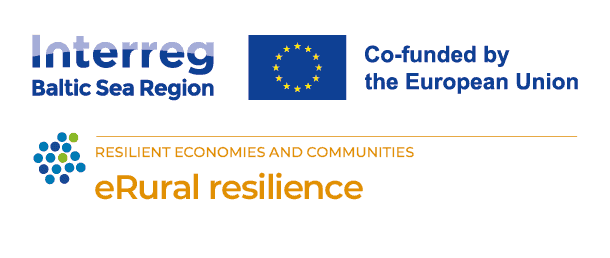
Project Partners Meet in Bieliny, Poland to Review and Validate Tested Project Solutions, 19–20 November
26 November 2025
On 19–20 November, partners of the Interreg Baltic Sea Region project e-Rural resilience met in Bieliny, Poland, for an intensive two-day workshop focused on validating the project’s newly developed self-assessment and advisory methodologies, and defining the next stages of implementation. The eRural resilience project develops digitals tools and solutions to support the development of e-bio-businesses in rural areas.
The meeting was hosted at the Center of Tradition, Tourism and Culture of the Świętokrzyskie Mountains, where partners engaged in a series of thematic workshops, feedback sessions and local study visits.
Refining Solution 1: Organisational Self-Assessment for Bio-Business Advisory Competences
A key part of the meeting was a deep-dive workshop on Solution 1, the organisational self-assessment tool. This tool has already been piloted by project partners, resulting in seven organisational analyses describing existing competences and development needs within bio-entrepreneurship advisory work.
Although the methodology is well-established, partners jointly identified several improvements—such as clarifying certain concept definitions, adding more detailed descriptions of assessment criteria, and including links to potential training opportunities (e.g., MOOCs and other learning formats).
Developing Methodology 2: Itineraries and Adaptation Plans
Partners also worked collaboratively on the implementation steps of Methodology 2, aimed at supporting the creation of advisory itineraries and adaptation plans for SMEs during their development process. Discussions focused on how to build a shared understanding of draft itineraries, final versions, and the structure of adaptation plans during the process.
Sharing Regional Expertise and Best Practices
The mayor of Bieliny Commune (GminaBieliny) Sławomir Kopacz delivered a comprehensive overview of entrepreneurship support in the region, highlighting examples of local initiatives that contribute to rural economic resilience. Local circular-economy businesses presented innovative approaches to re-use and upcycling, enriching the project’s exchange of best practices.
Partners also learned about SEEDIA’s smart public solutions, including solar benches and solar information kiosks, demonstrating how digital and green technologies can enhance rural service provision.
Developing rural enterprises and building a strong, cohesive entrepreneurial community is a challenge we all face. During our meeting in Bieliny, Poland, we gained valuable inspiration from local organisations, producers, and entrepreneurs who are working innovatively in the fields of bioeconomy and digitalisation to create a sustainable future for their region.
“Face-to-face meetings consistently bring important new questions and details to light, which are essential for the effective implementation of the e-Rural Resilience project. Discussing these matters together on site enables us to agree on next steps more efficiently, while also strengthening consortium cooperation and helping us identify additional opportunities for cross-regional knowledge transfer,” said Piret Arusaar, Project Manager of the Lead partner, the Association of Municipalities of Tartu County.






